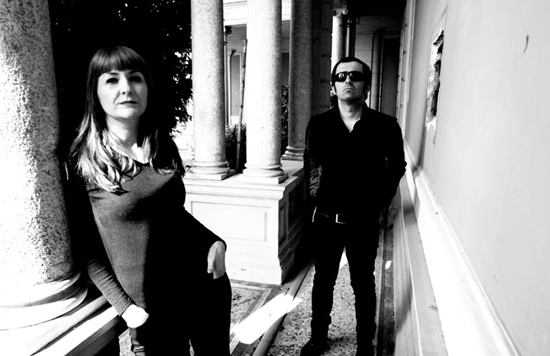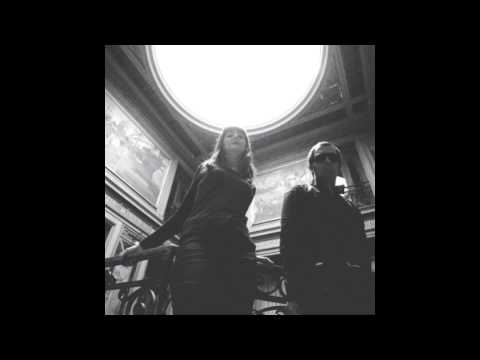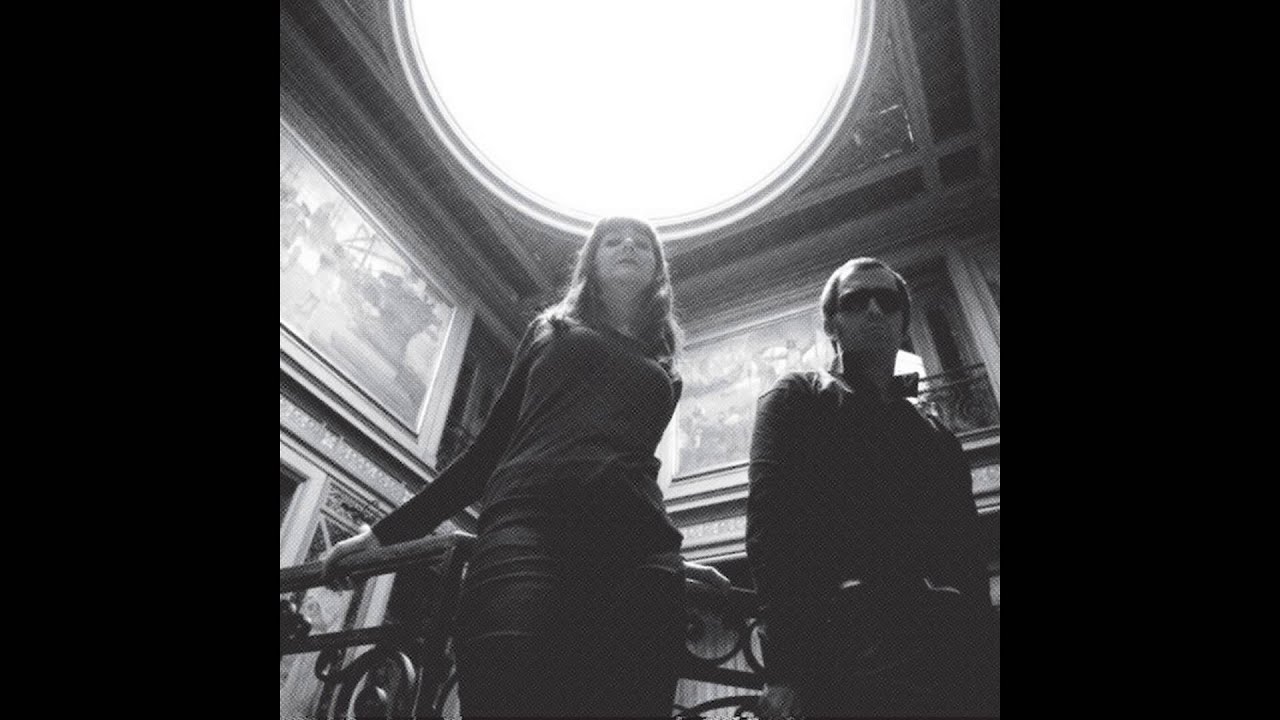"It was the earthquake that was the start of everything".
I’m sat in a cafe in Pigalle opposite Lionel and Marie Limiñana, who released their excellent psych rock opus and third long player as the Limiñanas, Costa Blanca, late last year. It was hard to predict quite what they’d look like on entering the Parisian coffeehouse, given that the album cover depicts the pair in grainy black and white, half obscured in silhouette, though on arrival it’s clear enough – they’re the couple that look most like renegades from the Baader-Meinhof gang. Both adorned in black, Marie has striking red hair with beret atop, while Lionel has a magnificent bomber’s beard and chunky jumper.
The duo hail from Perpignan near the Spanish border, and they have a great story to tell – though today it will only be Lionel doing the talking, as Marie doesn’t speak English (or would prefer not to conduct an interview in an unfamiliar language). Lio is relaying to me the dramas of adopting their son Clawensky from Haiti, an undertaking you imagine would be difficult enough, before you threw January 2010’s devastating earthquake into the equation. "We went to Haiti before the… how do you say… tremblement de terre," he recalls. "We were there the day before and we met our son, and we came back to our hotel in the afternoon and the ground began to shake."
The experience they describe was undoubtedly harrowing, though the pair seem philosophical given the circumstances. Marie had chosen a hotel and then changed her mind at the last minute. Like Johnny Rotten missing the fateful Pan Am flight 103 that blew up over Lockerbie, Marie’s hesitation might well have saved the couple’s lives. The guesthouse they eventually stayed in was made of wood and remained standing, while the brick hotel collapsed, causing fatalities. "So we stayed in Haiti for three days I think," continues Lio. "It was very hard, but we came back alive with our son. And after that we decided to concentrate on our music, to do the things that we want to do with our lives, because it felt like a second chance."
The Limiñanas had recorded two singles up to this point, but it was from here on in that they began recording in earnest. Lionel gave up his day job to look after their son and to make music seriously as his profession. "I take care of my son. Of course [conditions are] tough. I take my kid to school every morning, and we have our studio at home and I work every day on the music. We are always recording tonnes of demos, and after that we choose which ones we will use for the next record. We can do one LP every year if we want."
Many of the themes and lyrics on both their self-titled debut and 2012’s Crystal Anis deal with the trauma of this incident, and the trials and tribulations and – by the sounds of it – legal wrangles that took place during the adoption process "now everything is okay," says Lio, "and our son is amazing. It’s a strange story; we were really unlucky because we were just there the day the earthquake happened, but we didn’t die, so for us it was a second life, a new beginning."
When asked what differentiates their records, Lio replies that broadly speaking "the first one is a little bit more in a 60s vein, the second one is darker, and this one has a more Mediterranean feel." On the new record the pair were willing to experiment more, inviting other people to participate in the recording process for the first time. Paula H Satan from Bordeaux slacker noiseniks J.C. Satan contributes Italian spoken word on the wonderfully haunting ‘i miei occhi sono i tuoi occhi’, while Laurent Sales adds sitar on three tracks, infusing the album with a late 60s art rock vibe.
Unsurprisingly, the band have a garage full of instruments and Lio, a self-proclaimed "big fan" of Warren Ellis of Nick Cave & the Bad Seeds fame, picked up a bouzouki like Ellis’. "I tried it at home and I was happy with the sound when I experimented with it," he says.
You’re left with the impression that the Limiñanas live in their own analogue bubble, while the digital world hasn’t quite yet made it to their Perpignan haven just yet. When we talk about the Quietus, Lio asks "is it on l’ordinateur (computer)?" and many of the 60’s musicians they talk fondly of – Charlotte Leslie, Ronnie Bird – are so obscure now that they’re barely traceable on the internet. "We are listening to old stuff, always old stuff. Like US garage, English psychedelic music, Nuggets box sets with a lot of 60s bands from England. We love the Stooges, Suicide and stuff like that," he adds.
I’m loathe to point it out to another French act, but Gainsbourg is clearly an influence too, something that according to Lio is unavoidable growing up in France. "You love music, you love Gainsbourg. Of course, a lot of people tell us, ‘Oh, this sounds like Serge Gainsbourg’ or ‘That guitar sounds like The Velvets’ and it’s okay for us, we try to be honest, this is the music we’ve been listening to our whole lives. We are not afraid of mixing in the stuff we have been listening to since we were children."
Tonight Lio and Marie are in Paris to record two radio shows, including a session with Oui FM. It’s an invitation that will hopefully be less confrontational than when a welcoming committee turned up uninvited to greet their plane from Haiti nearly four years ago. One of those gathered on the tarmac was then foreign minister Bernard Kouchner, part of Nicolas Sarkozy’s government. "He was waiting for all of the people coming back from Haiti," says Lio. "We went three or four days without sleeping, and so a lot of people in the plane were really shocked, and some had blessures [injuries]. They asked us to stay on the plane. It was snowing and I said to the air hostess, ‘I don’t want to speak to journalists or anything like that, I just want to go home’. She says ‘no no, it’s nothing like that, it’s not journalists or the police.’"
The couple were forced to wait with the other passengers for up to an hour in the freezing cold, many with children. Then they were finally put on a bus and sent to the terminal where the world’s press were waiting alongside the man from the UMP. "I told him to, err, ‘go to hell’", says Lio euphemistically, "and I gave him the finger." He raises the bird and laughs. "It’s impossible now to find on the net. The pictures of that and the film of that have been erased."
The Limiñanas’ Costa Blanca is out now through Trouble In Mind




